Filter by
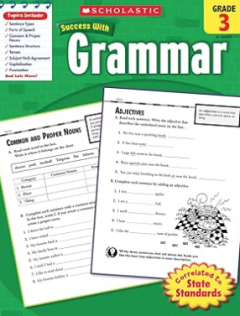
Scholastic success with grammar - Grade 3
Give students the targeted, skill-building practice they need with these standards-based books! Each workbook includes more than 40 ready-to-reproduce practice pages. Easy-to-follow directions and fun exercises motivate students to work on their own. Every activity in each book is correlated to state standards. For use with Grade 3.
- Edition
- -
- ISBN/ISSN
- 9780545201056
- Collation
- 64 p. ; ill. ; 29 cm
- Series Title
- -
- Call Number
- 372 SCH s
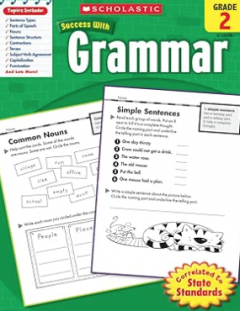
Scholastic success with grammar - Grade 2
Give students the targeted, skill-building practice they need with these standards-based books! Each workbook includes more than 40 ready-to-reproduce practice pages. Easy-to-follow directions and fun exercises motivate students to work on their own. Every activity in each book is correlated to state standards. For use with Grade 2.
- Edition
- -
- ISBN/ISSN
- 9780545201063
- Collation
- 64 p. ; ill. ; 29 cm
- Series Title
- -
- Call Number
- 372 SCH s
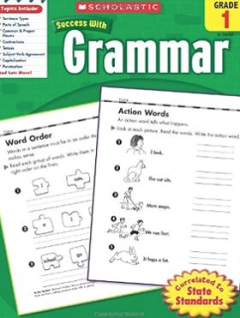
Scholastic success with grammar- Grade 1
Give students the targeted, skill-building practice they need with these standards-based books! Each workbook includes more than 40 ready-to-reproduce practice pages. Easy-to-follow directions and fun exercises motivate students to work on their own. Every activity in each book is correlated to state standards. For use with Grade 1.
- Edition
- -
- ISBN/ISSN
- 9780545201070
- Collation
- 64 p. ; ill. ; 28 cm
- Series Title
- -
- Call Number
- 372 SCH s
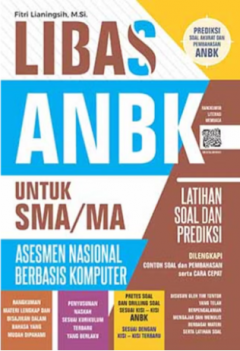
Libas ANBK untuk SMA/MA
Buku berjudul LIBAS ANBK Latihan Soal dan Prediksi Asesmen Nasional Berbasis Komputer (ANBK) untuk SMA/MA ini adalah panduan yang sangat berguna bagi siswa SMA yang akan menghadapi ANBK. Buku ini menawarkan rangkuman materi yang lengkap dan disajikan dalam bahasa yang mudah dipahami, sehingga memudahkan siswa dalam mempersiapkan diri.Salah satu keunggulan buku ini adalah penyusunan naskah yang …
- Edition
- Ed. 1
- ISBN/ISSN
- 9786230138706
- Collation
- 198 p. ; ill. ; 25 cm
- Series Title
- -
- Call Number
- 370 LIA l

What is climate change?
- Edition
- -
- ISBN/ISSN
- 9781524786151
- Collation
- 108 p. ; ill. ; 19,5 cm
- Series Title
- Who HQ
- Call Number
- 363 HER w
- Edition
- -
- ISBN/ISSN
- 9781524786151
- Collation
- 108 p. ; ill. ; 19,5 cm
- Series Title
- Who HQ
- Call Number
- 363 HER w
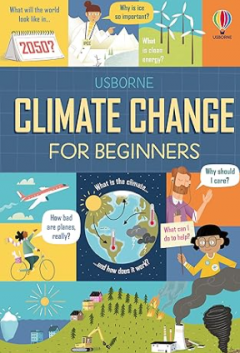
Climate change for beginners
This book explains, in simple language and with clear illustrations, what the climate is, and how it is changing very rapidly at the moment, and the effects this is having on our planet. It tackles suggestions about what needs to change in the way people live, from power stations to farming, and explains why it’s so difficult to do. Along the way, it also talks about what individuals can do, …
- Edition
- -
- ISBN/ISSN
- 9781474979863
- Collation
- 127 p. ; ill. ; 25 cm
- Series Title
- -
- Call Number
- 363 PRE c
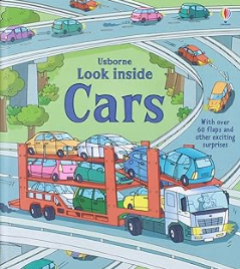
Look inside cars
- Edition
- -
- ISBN/ISSN
- 9780794532321
- Collation
- 14 p. ; ill. ; 27 cm
- Series Title
- -
- Call Number
- 387 JON l
- Edition
- -
- ISBN/ISSN
- 9780794532321
- Collation
- 14 p. ; ill. ; 27 cm
- Series Title
- -
- Call Number
- 387 JON l
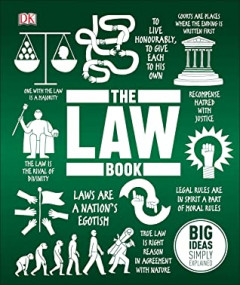
The Law Book: Big Ideas Simply Explained
From the philosophical, religious, and moral codes of the world's earliest societies, such as the Law Code of Hammurabi and the Ten Commandments, through groundbreaking legislation such as The Book of Punishments, Magna Carta and the Slavery Abolition Act, The Law Book offers an engaging and accessible overview of legal history across the world all the way into the 21st century with copyright i…
- Edition
- -
- ISBN/ISSN
- 9780241410196
- Collation
- 352 pages : illus. ; 24 cm.
- Series Title
- -
- Call Number
- 340.09 AND l
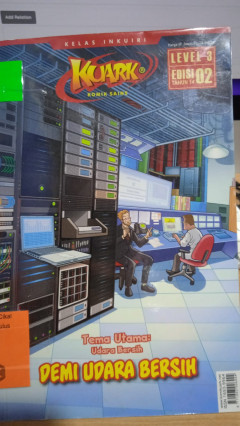
Demi udara bersih
- Edition
- -
- ISBN/ISSN
- -
- Collation
- -
- Series Title
- Kuark Komik Sains
- Call Number
- 363 HAS k
- Edition
- -
- ISBN/ISSN
- -
- Collation
- -
- Series Title
- Kuark Komik Sains
- Call Number
- 363 HAS k
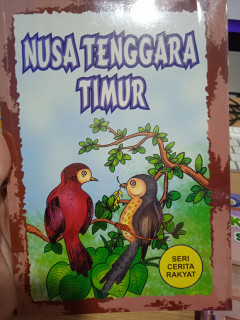
Nusa Tenggara Timur
- Edition
- -
- ISBN/ISSN
- 9786022009320
- Collation
- 64 p. ; ill. ; 20 cm
- Series Title
- -
- Call Number
- 398 DES n
- Edition
- -
- ISBN/ISSN
- 9786022009320
- Collation
- 64 p. ; ill. ; 20 cm
- Series Title
- -
- Call Number
- 398 DES n
 Computer Science, Information & General Works
Computer Science, Information & General Works  Philosophy & Psychology
Philosophy & Psychology  Religion
Religion  Social Sciences
Social Sciences  Language
Language  Pure Science
Pure Science  Applied Sciences
Applied Sciences  Art & Recreation
Art & Recreation  Literature
Literature  History & Geography
History & Geography